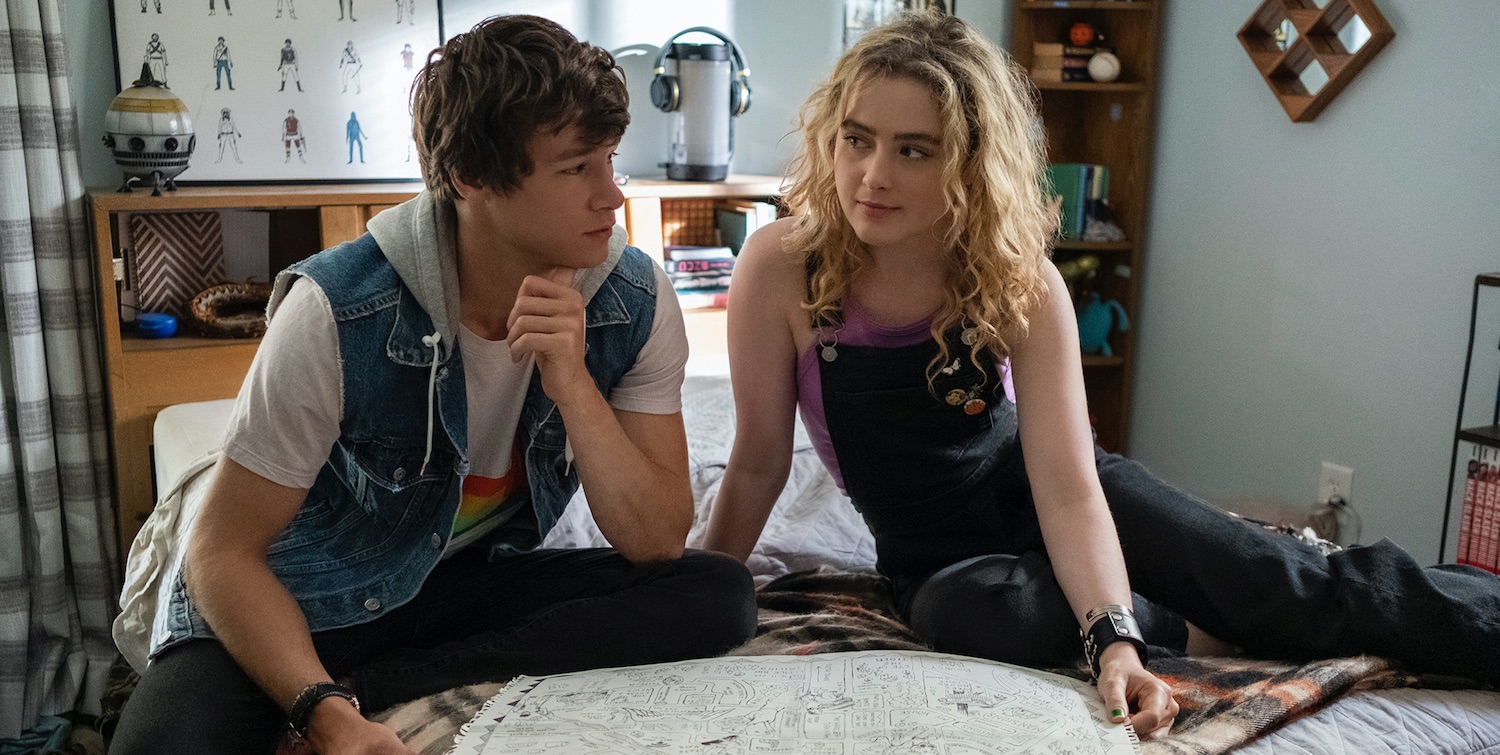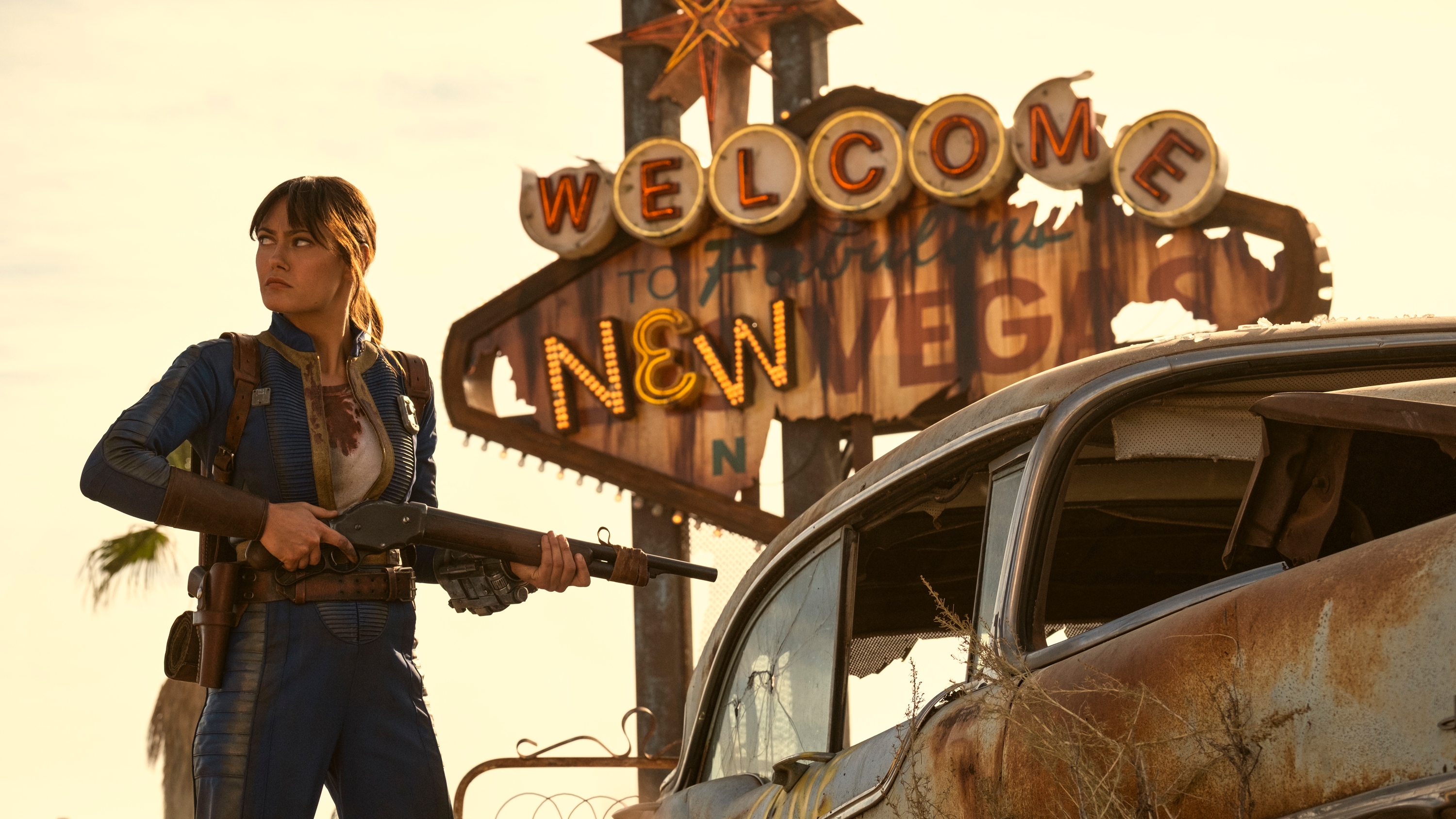What to Watch Verdict
Working from Lev Grossman's script, director Ian Samuels brings a new perspective and new emotional weight to the wish-fulfillment of time-loop movies.
Pros
- +
🌸 Relative newcomer Kyle Allen has an earnest, easygoing charm that makes him an actor to watch out for.
- +
🌸 Grossman's script unearths a new way to look at the conceit of a time-loop — what if you didn't want to leave it — audiences haven't seen.
Cons
- -
🌸 Some of the duo's adventures occasionally test the time frame's believability.
The Map of Tiny Perfect Things does a very interesting thing that hasn’t really been explored with the “time warp movie” narrative pioneered by Groundhog Day, Edge of Tomorrow and most recently Palm Springs: it asks “what if you want to be locked into a single day, instead of wanting to escape it?” Working from Lev Grossman’s screenplay, based on his own short story and not a Young Adult movie-adaptation title generator (eat your heart out The Fault in Our Stars and The Sun is Also A Star), director Ian Samuels very skillfully brings together two young people who are repeating the same 24-hour period but for entirely different reasons. Samuels’ visual dexterity keeps the characters daily do-overs from becoming repetitive, while actors Kathryn Newton and Kyle Allen ooze more than enough charm and chemistry for the audience to feel like they’re along for a fun, heartfelt ride rather than, well, locked in a time loop.
Allen plays Mark, a teenager who plays hooky from summer school because he’s been cursed to relive the same day over and over, instead memorizing the little events and accidents of his family, friends and fellow citizens, from sunrise to sundown. But when a young woman shows up one day to interrupt his efforts to save the girl he likes from getting knocked into a local pool — a rescue he’s coordinated to the second — he realizes that he’s not alone in this temporal prison. Margaret, it turns out, is similarly stuck, but she’s less eager to monitor the town’s little idiosyncratic moments, at least initially.
Soon enough, Mark entices Margaret to spend some time walking through the town looking through his eyes — causing trouble in some cases, preventing it in others. But she remains mysteriously distant when it comes to the events of her life, and keeps Mark at arm’s length even when the two of them clearly start to develop romantic feelings for one another. After Margaret breaks off their daily visits, Mark retreats back into the rhythms of his moment-by-moment documentation of the town; but it’s not until he looks more closely at some of the things in his daily life, ones that were routine long before the day repeated itself, that he begins to realize that there’s more going on for both of them that getting back to normal will not solve — and may in fact make worse.
Where almost all of those earlier time warp movies focused on characters who were older, more experienced, and perhaps more cynical about the world even before they were forced to revisit a single day again and again, Tiny Perfect Things makes a shrewd choice by making teenagers its protagonists, smart ambitious kids who transform their routines into a fun exercise to watch. Mark has not only memorized everything that his father and sister say at the breakfast table, but knows exactly when the neighbor’s sprinklers are coming on, can pick off a coffee poised atop a parked car, and knows where to be to lend directions to a cute girl looking for that nearby pool. Later, after he and Margaret have thoroughly canvassed the entire town, they debate the mechanics of their predicament and pose solutions while still dancing through space like they’re the designers of a giant Rube Goldberg machine. Samuels (Sierra Burgess Is A Loser) keeps these sequences moving so smoothly that one of the joys of revisiting the film will be to see the ways these characters seemingly anticipate everything in the environment around them.
If Newton’s character ends up injecting deeper substance into the story, Allen is an endlessly likable presence on screen, and the audience spends more time with him at the beginning to orient them in the mechanics of the world and get an experienced but whimsical introduction to what these characters are going through. He avoids being either smug or ingratiating, making Mark’s memorized routines a natural and understandable byproduct of his simultaneous creativity and boredom, so that when he decides to start looking a little more closely at his family and his own shortcomings, the growth is meaningful without needing to be transformative. As Margaret, meanwhile, Newton manages the right level of mystery about what’s going with her, intriguing the audience enough without jeopardizing her likeability before we learn what’s happening in her life while she isn’t with Mark. Smart, engaged and ambitious, she’s a strong counterpart to Mark that doesn’t slide into simplistic or cutesy romantic qualities.
Like its predecessors, Samuels’ film indulges in some fun wish fulfillment even as it carefully and subtly observes that there are a lot of people locked into repetitive, unhappy cycles even without a “temporal anomaly” keeping them reliving the same day. But it manages not to be treacly when it tries to observe the unexpected, found beauty of the world around these characters — the “tiny, perfect things” that make mundane, ordinary life so special; particularly at a moment when people’s routines are so repetitive and so similar, it’s a welcome, even necessary reminder. But the movie’s emotional heft comes from realizing that two people going through the say day may be having entirely different experiences for reasons the other may not know about at all, and consequently absorbing each new moment in precisely the opposite way — another moment stolen, rather than savored, and vice versa.
Ultimately, what The Map of Tiny Perfect Things adds to the canon of time warp movies is small but significant — because even after three really terrific movies that feel like they explore the logical, logistical and emotional elements of a premise that’s instantly identifiable (and in fact, two are liberally referenced), this new one proves that people can go through the same experience multiple times without it feeling redundant.
The latest updates, reviews and unmissable series to watch and more!
- The best Amazon Prime movies
- Amazon is right: You don't own your digital media
- The best shows on Amazon Prime
- New movies on Amazon Prime
Todd Gilchrist is a Los Angeles-based film critic and entertainment journalist with more than 20 years’ experience for dozens of print and online outlets, including Variety, The Hollywood Reporter, Entertainment Weekly and Fangoria. An obsessive soundtrack collector, sneaker aficionado and member of the Los Angeles Film Critics Association, Todd currently lives in Silverlake, California with his amazing wife Julie, two cats Beatrix and Biscuit, and several thousand books, vinyl records and Blu-rays.


